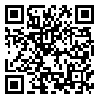Volume 3, Issue 3 (September 2021)
IEEPJ 2021, 3(3): 366-376 |
Back to browse issues page
Download citation:
BibTeX | RIS | EndNote | Medlars | ProCite | Reference Manager | RefWorks
Send citation to:



BibTeX | RIS | EndNote | Medlars | ProCite | Reference Manager | RefWorks
Send citation to:
Rahimi A, Ahmadi H, Rostami E. (2021). The Effectiveness of Teaching through Concept Maps on Elementary Students' Creativity in Science Lesson. IEEPJ. 3(3), 366-376. doi:10.52547/ieepj.3.3.366
URL: http://ieepj.hormozgan.ac.ir/article-1-345-en.html
URL: http://ieepj.hormozgan.ac.ir/article-1-345-en.html
1- Kharazmi University, Tehran, Iran , abdollahrahimi24@gmail.com
2- University of Kordestan, Sanandaj, Iran
3- Kharazmi University, Tehran, Iran
2- University of Kordestan, Sanandaj, Iran
3- Kharazmi University, Tehran, Iran
Abstract: (4577 Views)
Concept map is one of the teaching-learning strategies that can facilitate meaningful learning in students and show the relationships between the curriculum in a hierarchical manner. The present article has been developed based on research findings in which the effectiveness of concept map teaching on the creativity of elementary students in learning the concepts of the science lesson has been investigated. This study used a quasi-experimental pretest-posttest control design. The statistical population of this study included female school students, who were selected via accessible sampling and randomly assigned to the control and experimental groups. The research instrument included Abedi Creativity Questionnaire (1983). Data were analyzed by analysis of covariance (ANCOVA) using Spss22 statistical software. The results showed that the intervention based on the concept map was effective on students' creativity in science lesson by 63.8%. The results also indicated that the intervention based on concept map training has a positive and significant effect on the dimensions of creativity (fluidity, expansion, initiative, and flexibility).
Type of Study: Original |
Subject:
Educational Psychology
Received: 2021/02/4 | Accepted: 2021/06/12 | Published: 2021/09/1
Received: 2021/02/4 | Accepted: 2021/06/12 | Published: 2021/09/1
References
1. Azimpoor, R., Eisavi, M., & Azimpoor, E. (2017). Effectiveness of the teaching-learning strategy concept mapping in science teaching on the students' creativity Sixth grade elementary. Journal of Innovation and Creativity in Human Science, 6(4), 1-26.
2. Castillo-vergara, M., Galleguillos, N., Cuello, L., Alvarez-marin, A., & Acuña-opazo, C. (2018). Does Socioeconomic Status Influence Student Creativity? Thinking Skills and Creativity, 29 (February), 142-152. In. [DOI:10.1016/j.tsc.2018.07.005]
3. Chu, S. K. W., Reynolds, R. B., Tavares, N. J., Notari, M., & Lee, C. W. Y. (2021). 21st century skills development through inquiry-based learning from theory to practice: Springer.
4. Furtado, P. G. F., Hirashima, T., & Hayashi, Y. (2018). Reducing cognitive load during closed concept map construction and consequences on reading comprehension and retention. IEEE Transactions on Learning Technologies, 12(3), 402-412. [DOI:10.1109/TLT.2018.2861744]
5. Ghasemi, E., & Burley, H. (2019). Gender, affect, and math: a cross-national meta-analysis of Trends in International Mathematics and Science Study 2015 outcomes. Large-scale Assessments in Education, 7(1), 1-25. [DOI:10.1186/s40536-019-0078-1]
6. Gralewski, J. (2016). Teachers' beliefs about creativity and possibilities for its development in Polish high schools: A qualitative study. Creativity. Theories-Research-Applications, 3(2), 292-329. [DOI:10.1515/ctra-2016-0019]
7. Harjono, A., & Sahidu, H. (2018). Improving students' creativity using cooperative learning with virtual media on static fluida concept. Paper presented at the Journal of Physics: Conference Series.
8. Hasanpour, P., & sheikhzadeh, M. (2018). The effect of conceptual map teaching methods on female students learning in work and technology course. CURRICULUM PLANNING KNOWLEDGE & RESEARCH IN EDUCATIONAL SCIENCES, 15(30), 138-150.
9. Huang, P., Lin, S., Yuan, J., & Chen, H. (2020). Course Achievement Evaluation Using Concept Map in Traditional Learning. Paper presented at the Journal of Physics: Conference Series. [DOI:10.1088/1742-6596/1624/5/052014]
10. Lestari, F., Saryantono, B., Syazali, M., Saregar, A., MADIYO, M., JAUHARIYAH, D., & Rofiqul, U. (2019). Cooperative Learning Application with the Method of" Network Tree Concept Map": Based on Japanese Learning System Approach. Journal for the Education of Gifted Young Scientists, 7(1), 15-32. [DOI:10.17478/jegys.471466]
11. Mesrabadi, J., & Alilou, A. (2016). The Effectiveness of Conceptual Map on Retention and Understanding and Application of Science Concepts. Educational Psychology, 12(40), 151-171. doi:10.22054/jep.2016.5564
12. Pailai, J., Wunnasri, W., Yoshida, K., Hayashi, Y., & Hirashima, T. (2017). The practical use of Kit-Build concept map on formative assessment. Research and Practice in Technology Enhanced Learning, 12(1), 1-23. [DOI:10.1186/s41039-017-0060-x]
13. Prasetya, D. D., Hirashima, T., & Hayashi, Y. (2020). Study on Extended Scratch-Build Concept Map to Enhance Students' Understanding and Promote Quality of Knowledge Structure. International Journal of Advanced Computer Science and Applications (IJACSA), 11(4). [DOI:10.14569/IJACSA.2020.0110420]
14. Reiska, P., Soika, K., & Cañas, A. J. (2018). Using concept mapping to measure changes in interdisciplinary learning during high school. Knowledge Management & E-Learning: An International Journal, 10(1), 1-24. [DOI:10.34105/j.kmel.2018.10.001]
15. Salı, G. (2019). Examining the development of creativity in adolescents in 9th and 12th grades: a four-year longitudinal study. Creativity Studies, 12(2), 341-360. [DOI:10.3846/cs.2019.10260]
16. Samie zafarghandi, M. (2014). The Effect of Conceptual Mapping on Learning the Science Course. Educational and Scholastic studies, 3(4), 81-98.
17. Si, J., Kong, H.-H., & Lee, S.-H. (2019). Developing clinical reasoning skills through argumentation with the concept map method in medical problem-based learning. Interdisciplinary Journal of Problem-Based Learning, 13(1), 5. [DOI:10.7771/1541-5015.1776]
18. Sternberg, R. J. (2018). A triangular theory of creativity. Psychology of Aesthetics, Creativity, and the Arts, 12(1), 50. [DOI:10.1037/aca0000095]
19. Taghizadeh, M., Fathiazar, E., & Azarbakhsh, M. (2018). Effect Education with Conceptual Mapping on the Academic Achievement of Biology Lesson for High School Students in Kohgiluyeh and Boyer Ahmad. Research in Curriculum Planning, 15(59), 182-190. doi:10.30486/jsre.2018.545166
20. Tuan, L. T. (2011). The linkages between concept maps and language learning. Studies in literature and language, 2(1), 128-146.
21. Wang, H.-C., Chang, C.-Y., & Li, T.-Y. (2008). Assessing creative problem-solving with automated text grading. Computers & Education, 51(4), 1450-1466. [DOI:10.1016/j.compedu.2008.01.006]
Send email to the article author
| Rights and permissions | |
 |
This work is licensed under a Creative Commons Attribution-NonCommercial 4.0 International License. |









